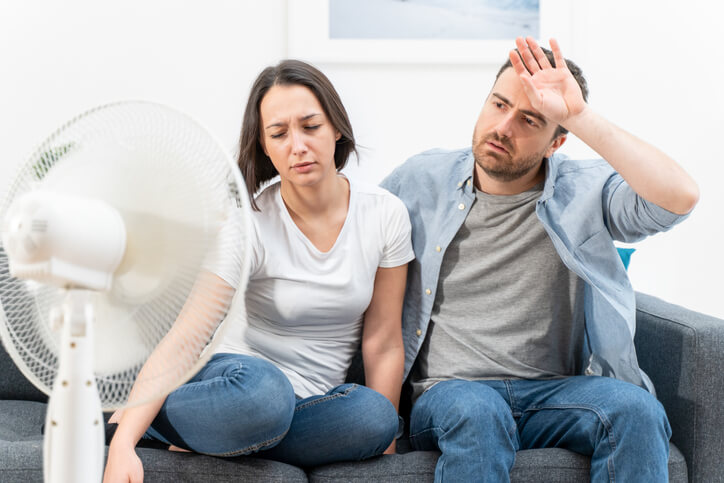
Feeling Uncomfortable At Home? Check Your Indoor Humidity
If you’ve ever been puzzled by how warm your home feels despite the thermostat’s reading sitting at a comfortable number, you’ve probably dealt with high indoor humidity. Humidity can make the air feel warmer than it actually is, causing itchiness, sweating, and discomfort. Unfortunately, Florida’s humidity levels are notoriously steep for most of the year, especially in the summer months. In fact, you’ve likely heard countless people talk about how unbearable the humidity is outside. But why does it feel so uncomfortable?
To help you get a better understanding of how humidity works, we’ve compiled a shortlist of some common humidity-related problems that Florida homeowners face and how to deal with them. Need professional help to improve your indoor air quality? Contact us right away!
Humidity Prevents You From Cooling Down
The main reason why humidity feels so uncomfortable is because it hinders your body’s ability to cool itself, particularly when you’re sweating. The more humid the air, the more water vapor it can hold, and (as a result) the more heat it can retain. As humidity starts to rise, the sweat beading up on your skin can’t effectively evaporate and provide you with cooling relief because the air is already so full of water vapor. As a result, you can start feeling warm and sticky from all the sweat, and even itchy from all the bacteria accumulating on your skin.
Telltale Signs Of High Humidity
Although humid air is not noticeably different to the naked eye, its effects are certainly visible and can be felt in a myriad of ways. The following includes some common telltale signs of high indoor humidity.
- Moist, Clammy Air
- Foggy Windows & Mirrors
- Difficulty Sleeping
- Musty, Foul Odors
- Frequent Discomfort
- Mold & Mildew Growth
- Rotting Wood
- Peeling Or Blistering Paint
- Dust Mites
How To Measure Indoor Humidity
One way to measure humidity indoors is to use a hygrometer. These devices are fairly cheap and can be found in most hardware stores. Just make sure to let your AC run for at least 15 minutes before using a hygrometer and avoid taking readings near heat-producing appliances as these might distort the results. Ideal humidity levels for Florida homes fall between 45-55%.
If you’re still unsure whether your home’s humidity levels are too high, contact our HVAC company to have a professional assess your indoor air quality.
Why Humidity Levels Matter
High humidity levels can affect you and your family in a myriad of ways, including the following.
- Heightened allergy symptoms. When humidity levels increase, your home becomes a breeding ground for allergens, such as mold, dust mites, fungi, and bacteria.
- Uncomfortable living conditions. When indoor humidity is high, it feels sticky, stuffy, and hotter than it actually is.
- Increased usage. When your home feels hotter, it is only natural to crank up the AC. Unfortunately, this can result in higher utility bills and an overworked AC unit.
- Property Damage. High humidity can cause costly home damage, such as warped wood floors, peeling wallpaper, and stained walls and ceilings.
How To Lower Humidity
Aside from using a high-quality dehumidifier, the best way to lower and prevent high humidity from wreaking havoc in your home is to maintain a well-functioning AC unit. By cooling the air, your air conditioner is also reducing its moisture content. However, if your AC unit is malfunctioning or operating at a reduced efficiency level, it won’t be able to do so well.
To ensure your home remains comfortably cool and at a proper humidity level, contact our HVAC experts with LIBERTYAIR to schedule AC repairs at the first sign of a problem and sign up for AC planned maintenance. Looking for affordable and flexible payment options? For your convenience, we also offer HVAC financing plans!